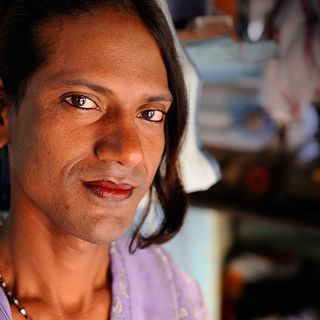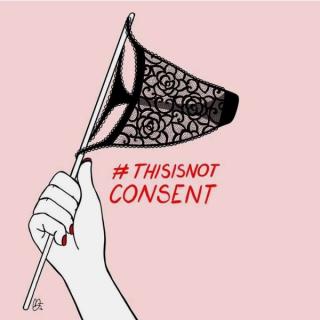
From “Sick” to “We That Are Young”: The Ultimate Women‑Centric Reading List from 2018
The author of “Cyber Sexy” shares the books that got her through 2018.
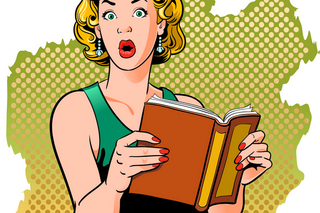
2018 was a garbage year.
Trump doggedly put up ever-spikier walls. The Indian state imprisoned or murdered a bunch of activists. Britain is clawing out the sort of exit that will make re-entry impossible. Climate scientists are predicting Armageddon. And Paris is burning (though that last one isn’t necessarily a bad thing).
Personally speaking, this year has been equally horrendous. In fact, with increasingly terrible immigration controls, the proliferation of wars, and the incredibly powerful (yet terribly triggering) #MeToo revelations, it’s the sort of year that makes separating the personal and the political virtually impossible. It’s what Scaachi Koul calls “an almost cosmic kind of hopelessness.”
And yet, I think we’ve all done the human thing and tried to find moments of hope – wherever, and however, we could. Small bursts of pleasure, brief bites of joy. Maybe for you it was a Tinder date that didn’t suck. Or receiving a letter from a long-lost friend. Or watching a Beyoncé video on repeat. Whatever their form, I really believe it’s these small seeds of hope that have sustained us.
Here are five of mine.
Sick, by Porochista Khakpour
In 2013, I got a headache. Which seems normal enough, until you realise that it’s now the end of 2018, and that headache never went away. In the interim, I acquired other mysterious, debilitating symptoms – fatigue, neck pain, and worse of all: dizziness. In many ways, the journey of the past five years has been like trying to solve a mystery. And it is this mystery of health and illness, of hope and despair, that forms the pulsing core of Iranian-American novelist Porochista Khakpour’s first memoir, Sick. Porochista writes illness like it feels, which is so rare in a world that privileges established science over lived experience. As we follow Porochista through the rhythms of wellness and illness that lead towards – and then away from – her eventual diagnosis of Late-Stage Lyme Disease, we are also following her through her memoir; that is to say, her life. This sparse, beautifully rendered book moved me to my core, and whether or not you have any experience of illness, chances are that it will move you, too.
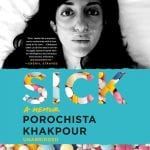
The Mermaid and Mrs Hancock by Imogen Hermes Gowar
I first discovered this book when it was shortlisted for the Women’s Prize for Fiction, and for the first 30 or so pages I was like, “Wait, what am I even reading?” Set in the 18th century, this exquisite debut novel opens with a merchant waiting for his very delayed ship to come in. Witnessing men pace in anticipation of their capitalist ventures is not my thing – inside or outside fiction. But Mr Hancock’s restlessness is only the entry point into a delicious historical fiction that encompasses everything from sex work, to race relations, to the myriad ways in which women must work within the limited social agency they have. The Mermaid and Mrs Hancock draws you in like the lonely, hypnotic mermaid at its heart. And when its rich world finally releases you, there is none of the relief at escaping a sea creature’s clutches. This is one ocean in which I wanted to swim forever.
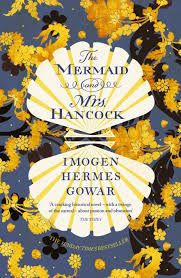
We That Are Young by Preti Taneja
When I studied English literature, we often came across variations of the question, “What if Shakespeare was a woman?” And while I personally subscribe to the theory that Shakespeare’s plays – like all plays at the time – likely came into being through a collaborative process, I find it pretty hard to believe that many women were involved. Because if Shakespeare was a woman, he wouldn’t have written King Lear. She would have written We That Are Young. Preti Taneja’s debut novel is King Lear set inside an uber-rich and powerful Indian business family, with a patriarch whose mind and empire are beginning to unravel. And unlike the two-dimensional daughters set to inherit Lear’s kingdom, the women in We That Are Young are flawed, happy, desperate, cruel, hopeful, real. I wish I could have studied this book at uni, and I really hope that young adults today will have the chance to do so. After all, the future belongs to those who are young. And as all tragedies teach us, the future looks rather bleak.
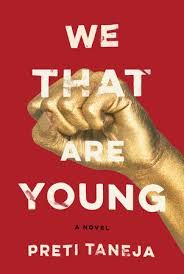
Goodbye, Perfect by Sara Barnard
No one writes friendships between teenage girls like Sara Barnard. Or no one I’ve found, at least. And books about teenage girls are my very favourite genre of writing. Goodbye, Perfect is the story of what happens when Eden’s steady, reliable, academically-perfect best friend Bonnie suddenly swerves her life off course in the least reliable way possible: She runs away. With, of all people, her teacher. And only Eden knows where they are. But of course, best friends never tell – right? This is Eden’s story, but it is also the story of friendship and change and labels and love. And without putting too fine a point on it, Goodbye, Perfect also gently explores the abuse of power, and what the age of consent really means. I love everything Sara Barnard has ever written, and I seriously can’t recommend this book enough – to young adults and old adults alike.
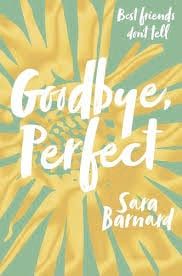
Eleanor Oliphant is Completely Fine by Gail Honeyman
This was one of the first novels I managed to read after my cat died at the beginning of the year. I was not completely fine. And nor is Eleanor. This novel by Gail Honeyman is an exquisite, painful, healing, heart-rending (yes, all these things at once!) story of profound loneliness, and what it means for one human to reach out to another. I don’t want to give too much away, so all I’ll say is that I don’t know a single person who read Eleanor and didn’t fall in love with it. Read it, read it, read it. And maybe you’ll discover that you are more fine than you thought you were. Or, at least, that you can be.
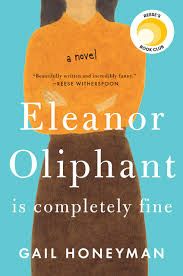
To Be Read…
Like most people, I don’t just read what came out this year – partly because there are so many wonderful books in the world that we’re playing endless catch up, and partly because I live in India, where we often have to wait up to a year for a book published elsewhere to become affordable.
All this to say that there are so many 2018 releases on my bookshelf, or in my Amazon cart, that I haven’t gotten to yet. Here are a few I can’t wait to read. Everything Under by Daisy Johnson (currently reading, absolutely loving), Feel Free, by Zadie Smith, Milkman by Anna Burns, The Queen of Jasmine Country by Sharanya Manivannan, The Incendiaries by R.O. Kwon, Hush A Bye Baby by Deepanjana Pal, Educated by Tara Westover, Transcription by Kate Atkinson, Passing for Human by Liana Finck.
I have no doubt that all these books will be absolutely fantastic. In fact, they’re my seeds of hope for 2019.
What are yours?
Richa Kaul Padte is a writer covering sex, gender, tech, illness and popular culture. She's the co-founder of Deep Dives, a digital imprint specializing in longform storytelling, and the author of Cyber Sexy: rethinking pornography (Penguin Books, 2018). You can find more of her work at richakaulpadte.com.
Related

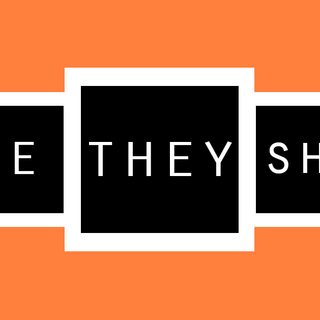
Using People’s Preferred Gender Pronouns Is Respectful, Not Weird
